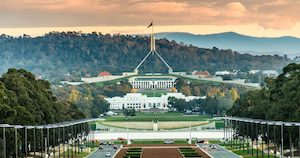One of the major complaints that Milton Friedman and his ilk made about the use of discretionary fiscal policy was that time lags made it ineffective and even dangerously inflationary. By the time the policy makers have worked out there is a problem and ground out the policy intervention, the problem has passed and the intervention then becomes unpredictable in consequence (and unnecessary anyway). The Financial Times article (March 29, 2021) – To compare the EU and US pandemic packages misses the point – written by Ireland’s finance minister reminded me of the Friedman debate in the 1960s. Apart from the fact that the article is highly misleading (aka spreading falsehoods), it actually exposes a major problem with the way the European Commission operates. If Friedman’s claim ever had any credibility, then, they would fairly accurately describe how the European Union deals with economic crises. Always too little, too late … and never particularly targetted at the problem. The debate remains relevant though as governments move away a strict reliance on monetary policy and realise that fiscal policy interventions are the only way forward. Most governments around the world are talking big on public infrastructure projects. However, the design of such interventions must be carefully considered because they can easily be dysfunctional. Further, thinking these projects are a replacement for short-term cash injections is also not advised. I consider these issues in this blog post.
